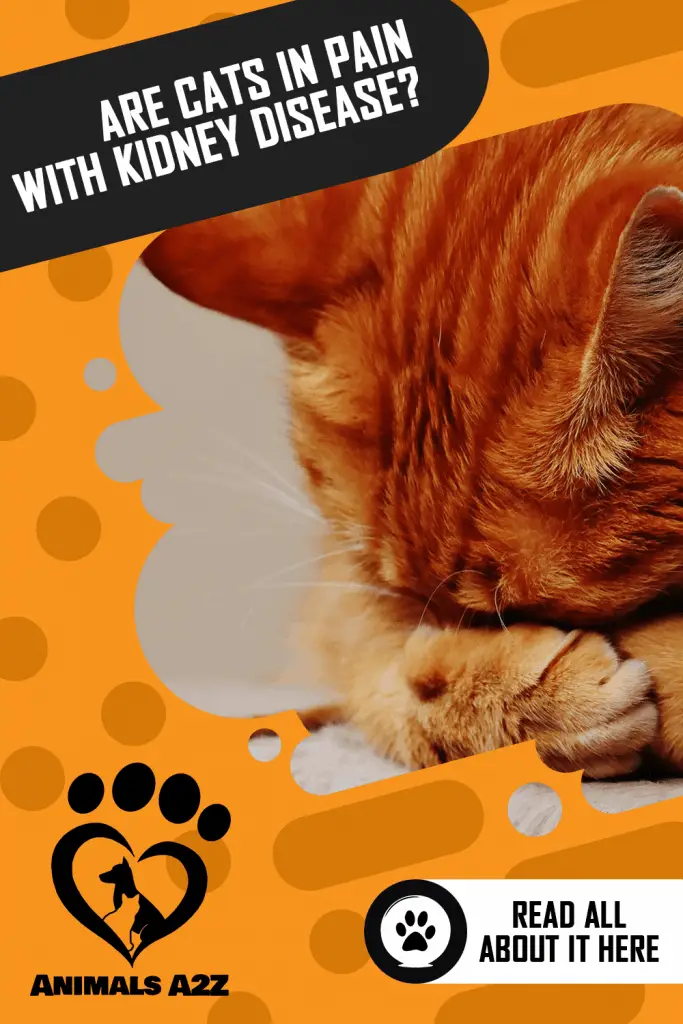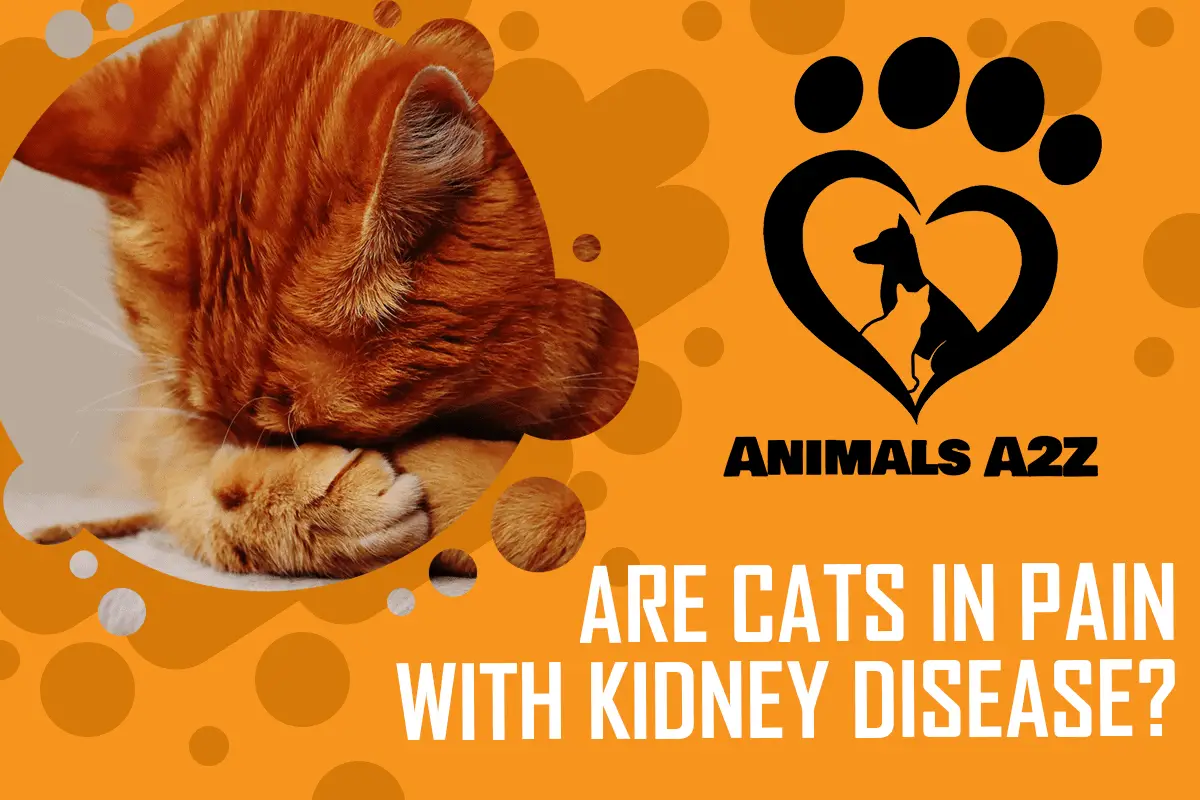The kidneys of your cat can do a lot of important things. Their kidneys help make hormones, manage blood pressure, as well as stimulate the bone marrow to make red blood cells, as well as remove waste from your cat’s blood.
Kidney disease is a common health problem experienced by cats. This condition occurs when the kidneys of a cat begin to fail, which results in waste product’s buildup in the blood. Eventually, the waste products present in the blood will poison the cat, leading to a devastating and painful disease.
Table of Contents
Are cats in pain with kidney failure
The kidney failure itself is not that painful. Some of the associated symptoms of kidney disease might be though. Your cat will likely experience regular nausea and perhaps gagging at the smell or sight of food. Stomach irritation and constipation are normal for a cat with kidney failure.
Understanding Kidney Disease in Cats
The kidneys of your cat can start to fail with age. If left untreated, kidney problems can lead to several health problems. If the kidney disease is chronic, there will be no cure for it. However, with good care and early diagnosis, there’s a big chance that you can help boost the length and quality of your cat’s life. Older cats are not the only ones at risk of developing kidney disease. Kittens can also be born with this disease. Toxins, infection, and trauma are also some of the major causes.
Types of Kidney Disease in Cats
Kidney disease in cats may be either acute or chronic. Acute kidney failure is a sudden shutdown of the cat’s kidneys. On the other hand, chronic kidney failure is an irreversible and slow-moving destruction of the cat’s kidneys. Both chronic and acute kidney disease are serious and can be fatal.
Causes of Kidney Disease in Cats
Kidney failure might be caused by a wide variety of factors, such as age, genetics, diet, other diseases, and environment. Unluckily, since there’s no main cause of cat’s kidney disease, there are no specific prevention techniques to perform either.
Symptoms of Kidney Disease in Cats
Two of the most common signs of kidney disease in cats include increased urination and thirst. But later on, as the kidney disease progresses, they will likely experience dehydration, loss of appetite, weight loss, nausea, emaciation, lethargy and vomiting, among others.
Effects of Kidney Disease in Cats
Even though kidney disease in cats may not be very painful, its associated symptoms can cause a lot of discomfort and pain. If your cat suffers from kidney disease, he will possibly experience constant nausea and possibly gagging at the smell or sight of food. Stomach irritation, constipation, and dehydration can eventually lead to weakness, emaciation, and total lethargy of your cat.
Kidney Disease Treatment in Cats
Unfortunately, there’s no cure for chronic type of kidney disease in cats. But a good strategy for treatment with the help of a specialized medication, diuresis, and diet, can help a lot in controlling the symptoms as well as providing comfort. On the other hand, acute kidney failure might be reversed if aggressive and immediate treatment is available.
Frequently Asked Questions About Kidney Disease in Cats
Do Cats with Kidney Disease Suffer?
Kidney disease is one of the leading causes of death and suffering in cats and has been very difficult to combat since it’s not usually detected until the health damages was done and already permanent. Furthermore, since kidney problems impact many cats and early detection is very important, it is a great idea for you to know and learn everything you can about it.
Can a Cat Recover from Kidney Disease?
Once the kidneys of a cat are severely damaged, chances are he already has a very limited chance to recover. But with the right management, most chronic kidney disease cases progress slowly. Thus, with proper treatment, your cat might have several years of active and good quality life ahead. On the other hand, if your cat has acute kidney disease, it can still be treated or reversed with immediate and aggressive treatment.
How Long Can Cats Live with Kidney Disease?
The kidney problem’s prognosis is quite variable basing on the response to the treatment’s initial stage as well as your ability to maintain the follow-up care. In most situations, experts suggest treatment since many cats will be able to respond as well as maintain a sound well-being and quality life for up to 4 years.
Conclusion
If you have a cat with kidney disease, you’re maybe thinking of many things right now on how to help your cat. Normally, acute kidney failure is treatable, as long as it’s caught and treated early. The moment your veterinarian can pinpoint the health problem of your cat, proper treatment to relieve the cause could be given to your cat and fluid treatment will be done to flush out the blood stream as well as the kidneys while making sure that your cat is kept hydrated. The moment your cat is already stable, you’ll be allowed to take him home so you can continue home treatment.
The home treatment normally involves keeping them well fed and well hydrated, which gives them more rest in your home. While not all cats that are suffering from acute type of kidney disease will need a diet change, your veterinarian will still advice you basing on the specific needs of your cat.
On the other hand, chronic kidney disease in cats can’t be treated but it can still be managed well with the right medication and diet to help keep the progression slow. In terms of chronic kidney disease, a special diet for cats suffering from this disease is the highly recommended together with the proper treatment your veterinarian advises since your cat will now need a restricted phosphorus diet that has high levels of DHA/EPA and antioxidants as it can help support diseased kidneys.


